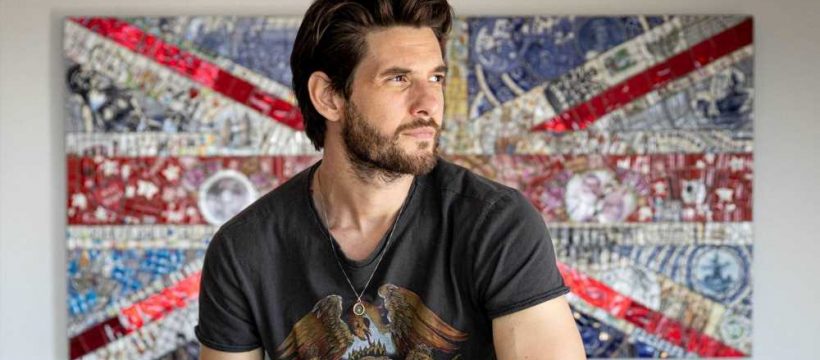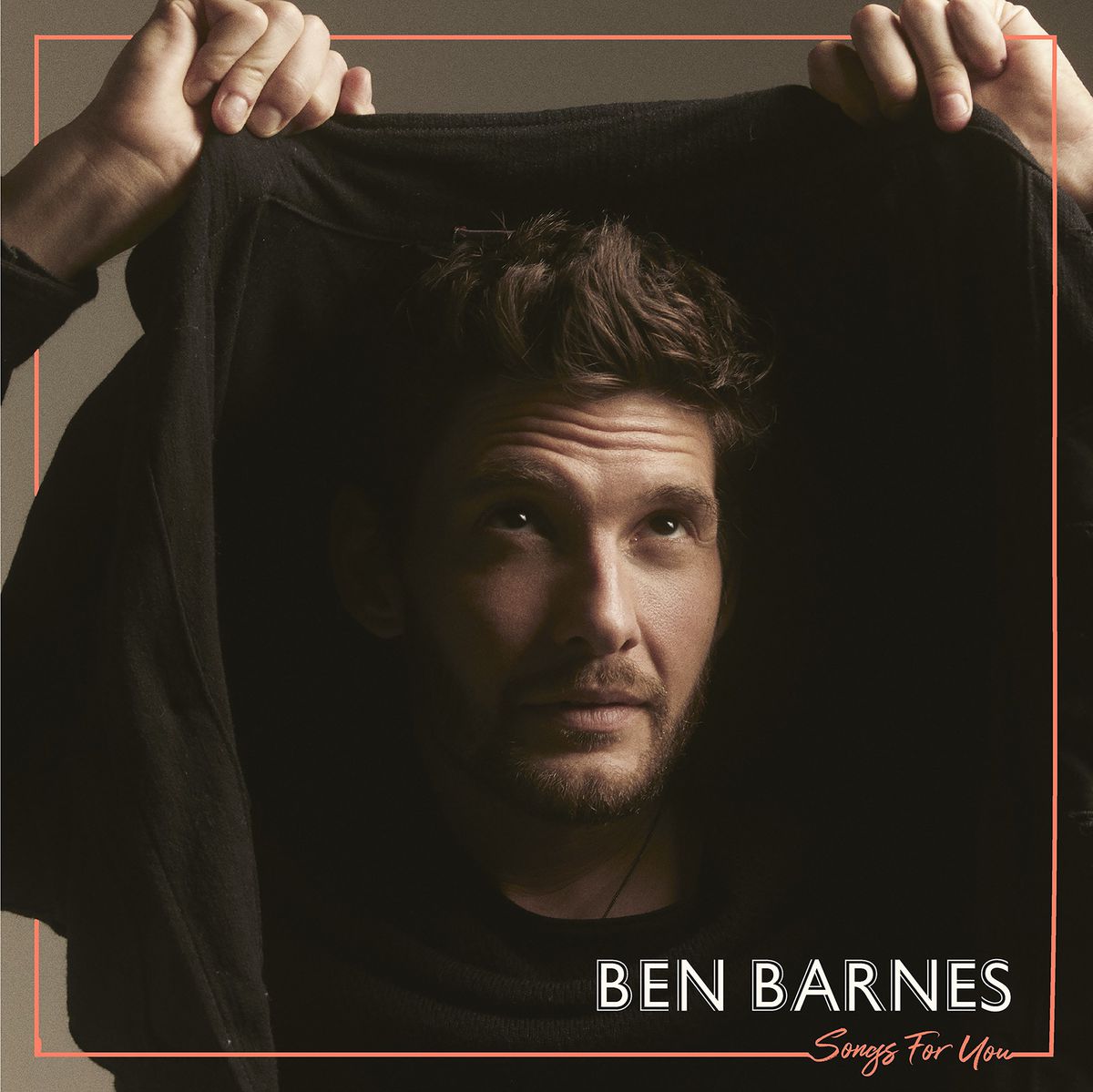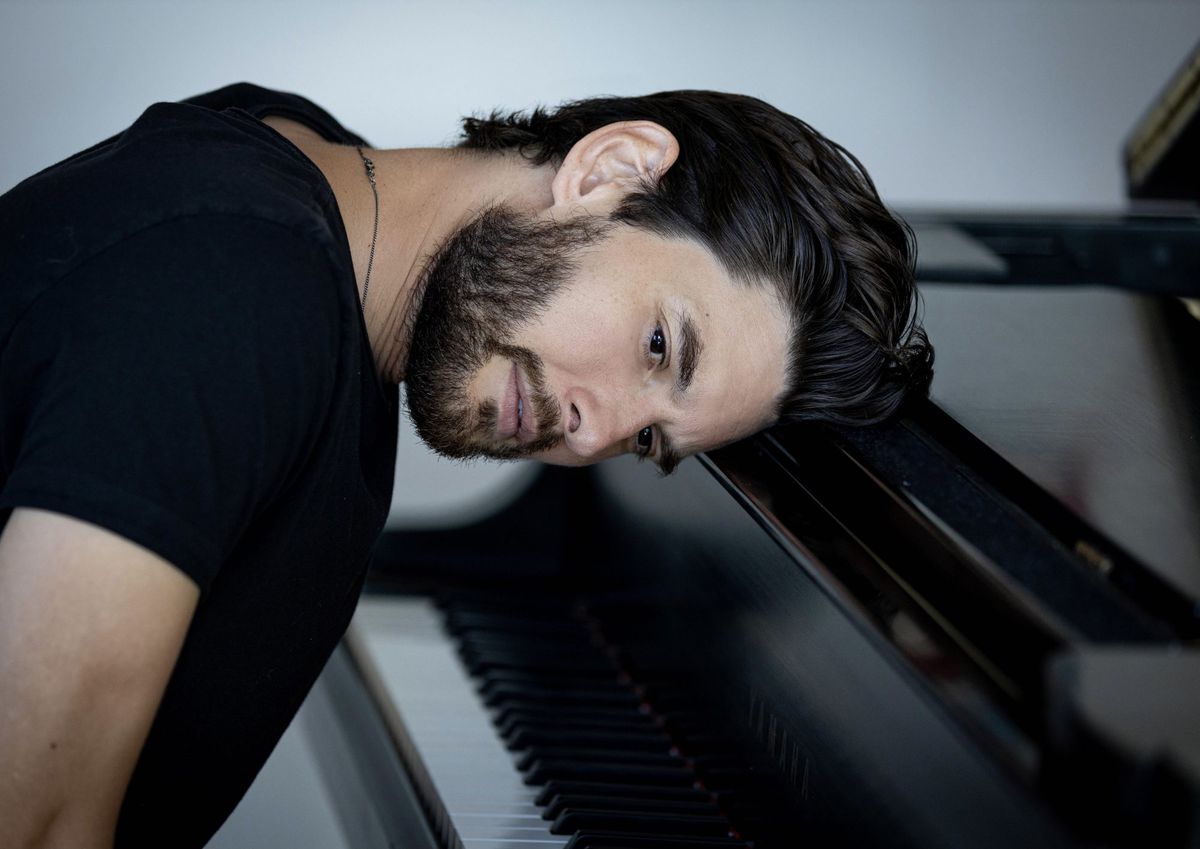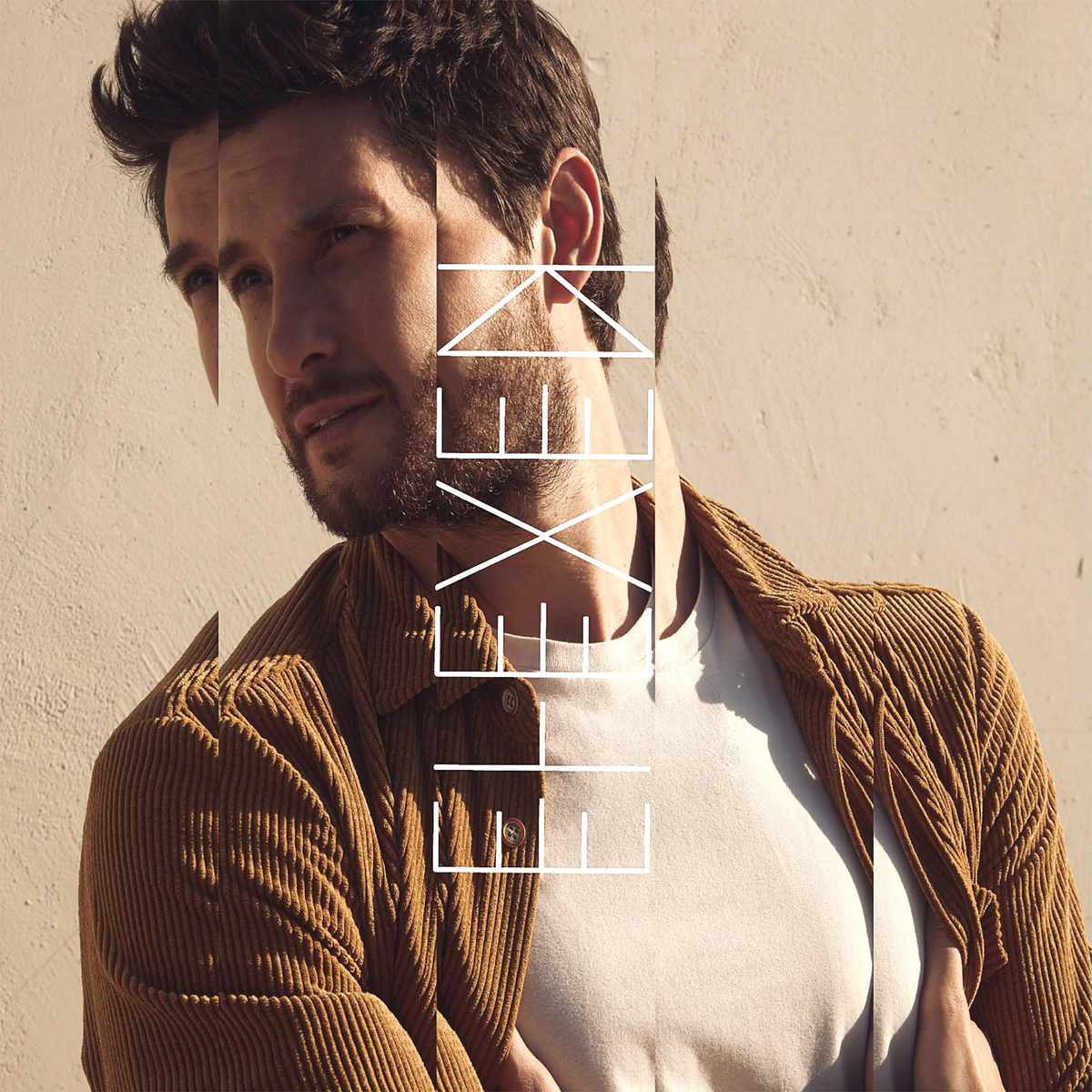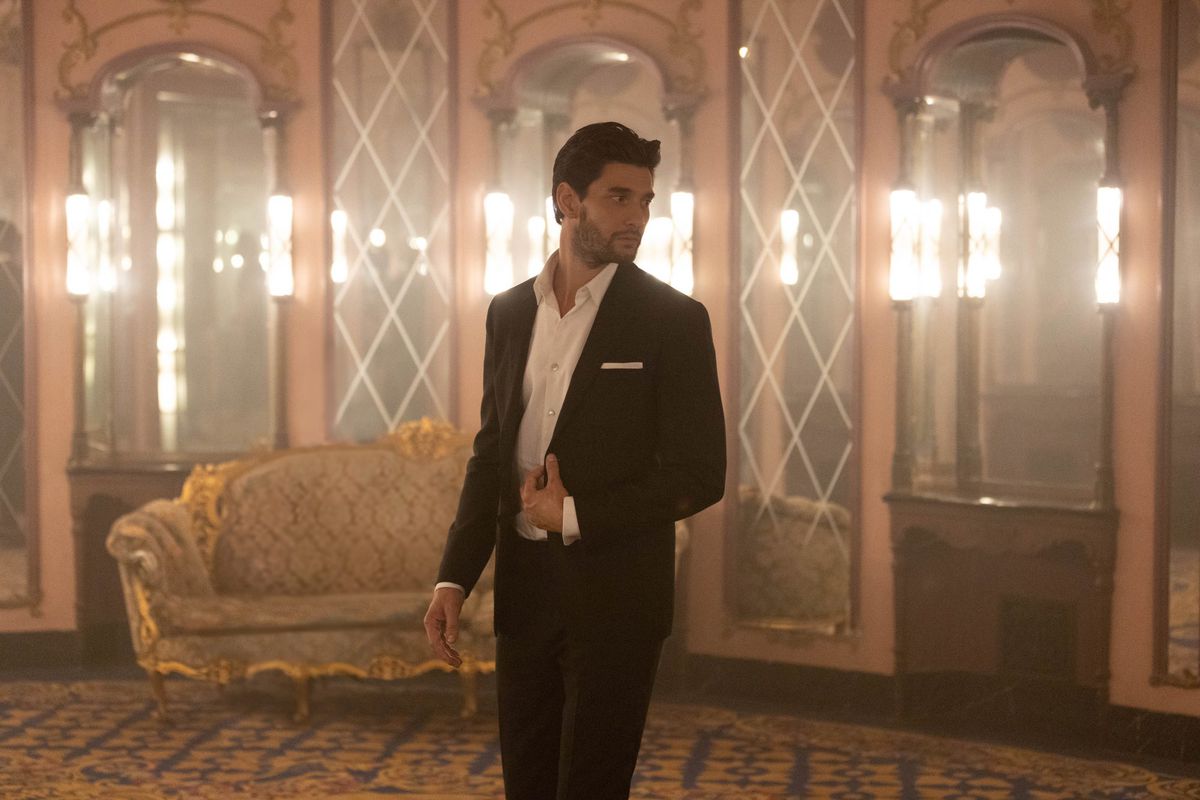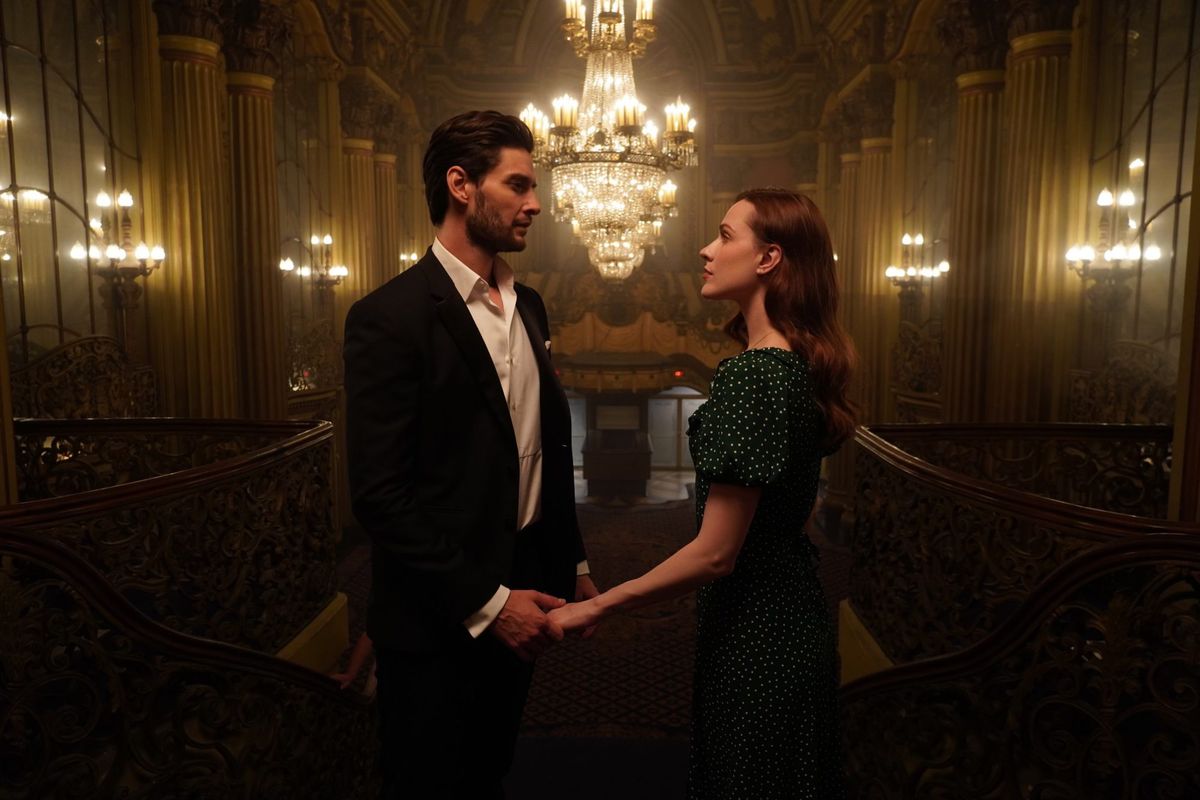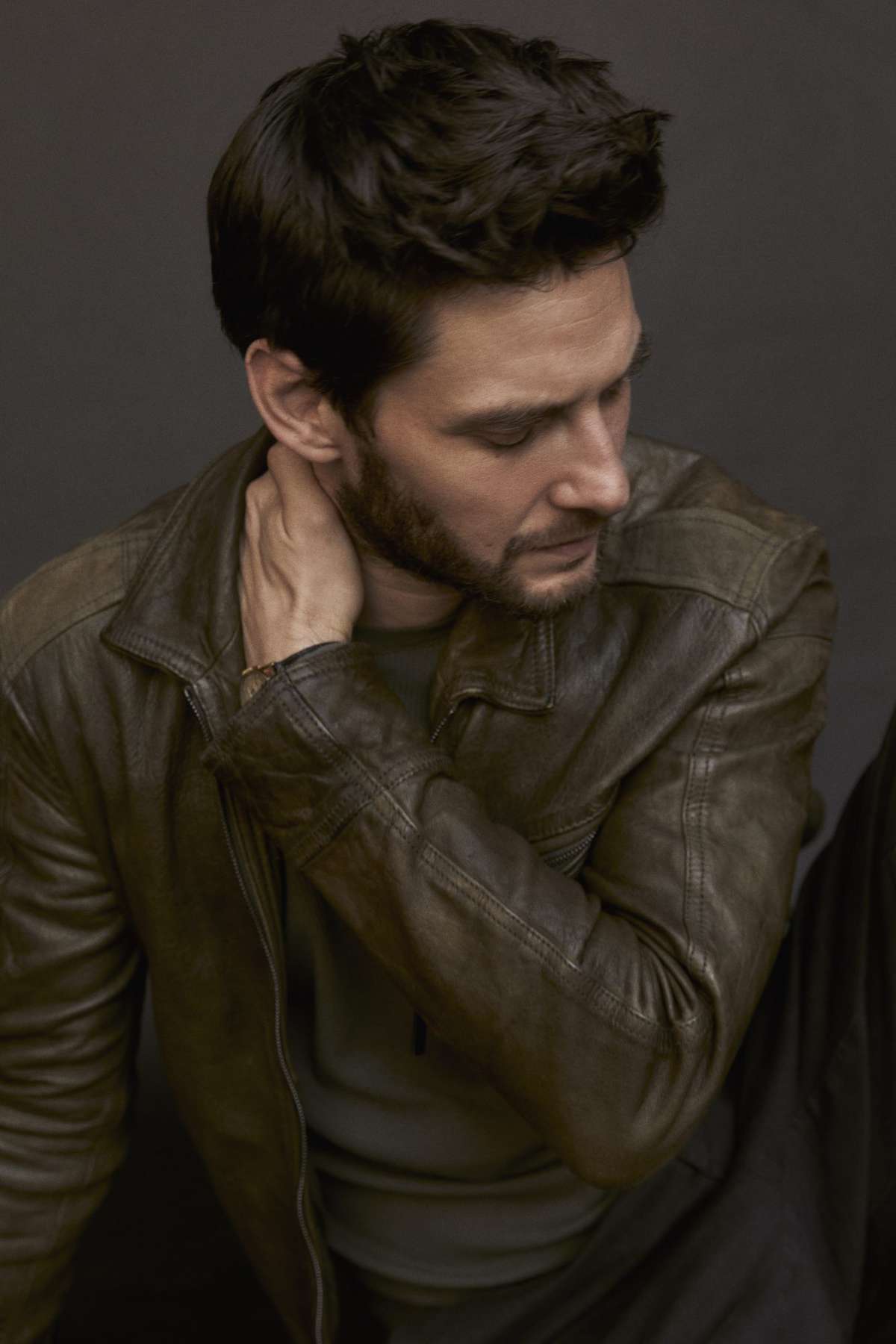This is a story about priorities. Ben Barnes thought he knew what his were, until someone — an ostensibly straightforward person in his life — told him that none of the things he said were his priorities actually were his priorities because, well, he didn't prioritize them.
"I was like, 'Oh, it's my priority to do this and do this and do music.' This person said, 'None of those things are your priorities.' I was like, 'Yes, they are.' They said, 'You're prioritizing your career, your home, your friends, your family. You're not prioritizing those things you've just said, one of which was playing music and sharing music, because those aren't your priorities.'"
That shook him, the realization that you can have ideas of how you want to be, how you see yourself, and how you want to be perceived, all of which can be different from your actual priorities.
We're on Zoom on a recent Friday afternoon as he sits in an immaculate hotel room in Toronto, where he's filming Guillermo del Toro's Cabinet of Curiosities for Netflix. We're here because two years after we first spoke for this magazine, during which he offhandedly mentioned dreaming of putting together an album one day, he's adding "musician" to his bio. (Literally: His Twitter bio is "Actor, Musician," while his Instagram page reads, "Actor, Lover of Life, Singer of Songs," a Freddie Mercury reference.)
On his 40th birthday this year, he announced to nearly 2 million Instagram followers that he'll be releasing an EP of five original songs titled Songs For You, a nod at Leon Russell's classic track "A Song For You," specifically the Donny Hathaway version.
An album announcement probably isn't something most people expect from someone they've seen on screen turning delinquency into sympathy (Westworld), making excavations of manipulation and revenge (The Punisher), untangling the complexities of a centuries-old general (Shadow and Bone). Even if you've seen his Instagram piano session covers, a voice smooth enough to make satin seem like sandpaper doesn't necessarily make for a musician (though in this case, it has). If you're surprised, or even skeptical, he gets it. He's thought it, too: Who am I to be trying to put albums out? But something about getting older, going through a little more of life, and living through an unparalleled pandemic has galvanized him into wringing off some self-doubt. If not now, when?
"I guess there was a little voice telling me to stay in my lane from very young. Fuck that voice, basically," he laughs. "It's not useful to me. I'm not going to regret sharing something I've made."
Still, music has kind of always been his lane, even if acting is what took hold. When he was 19, all he wanted to do was play music. Before he was Prince Caspian, he was in a soul band at school, singing at Frank Sinatra tribute concerts, playing people's graduations. To go back even further, he remembers being about 10 years old, being mentored in the art of listening to music by his father and being raised on all the '70s heavy hitters: The Beatles, The Rolling Stones, Queen, The Who.
"I actually remember being bullied and beaten up at school around that age for saying I liked Queen," he recalls, the memory seeming to come to him in real time. "Because Queen was very flamboyant and obviously Freddie Mercury was gay. It was just for some reason not a very cool band to like for that age group. I remember being mocked mercilessly, but I would stick up for it. I'd be like, 'No, they're the greatest band in the world.'"
Something he's less keen on, however, is his brief stint in a boyband, Hyrise, their Eurovision 2004 entry performance now immortalized on YouTube — and since we're here discussing his music, I point out that it's interesting he hasn't brought it up. He fixes me with a derisively vexed stare.
"You don't find it interesting, you know exactly why I haven't," he laughs.
Chagrin aside, one thing he learned from that fleeting brush with pop stardom was that "no" can be an empowering word.
"It felt like I was pretending," he says of the experience. "I was playing the part of someone who wanted to be in a pop band and I didn't — I knew I didn't. We only had one song and I think we performed it on TV once. The next day, I watched it and went, 'I don't like this music, and I don't want to be involved if I don't love it.' I think it's about having the courage to say no to things that don't feel authentic to you, especially when it comes to something that is your passion."
Authenticity is something that comes up a lot when you talk to him and about him. When I asked John Alagia, one of the producers on Songs For You, what stood out to him about Barnes as an artist, he didn't hesitate: "his authenticity." Alagia's girlfriend, actor and musician Hunter Elizabeth, had set up a meeting between the two last year because Barnes was looking for a new piano and Alagia was selling. It wasn't until months later that they began working on the EP over Zoom calls amid the pandemic, but he was sold upon sight.
"I really liked him from that first meeting and without even hearing his material, I was like, 'I'm in,'" Alagia tells me. "I loved him without even knowing him, actually. Then, I heard the material and I thought, I could work with this guy. It was a very natural thing, there was no second guessing on my part about working with Ben."
Alagia produced the EP alongside musician and producer Jesse Siebenberg and is effusive in his enthusiasm, both about the experience of working on it and about Barnes as a person and artist.
"What I really found enjoyable about him is that he is self-taught," he says. "All the artistry is coming strictly from the heart."
"From the heart" is also a good descriptor of Barnes' writing process, which he describes as a poetic exercise of letting the words come to him. The songs are about "different people, but over the same period of time," an encapsulation of his experience of the world and other people in a particular time stretch. The words found him, but the more painstaking part was figuring out melodies. Barnes says he drove his producers "nuts" not knowing names of specific chords; Alagia thought it was "really cool" to watch him search and eventually nail the compositions.
It also didn't come naturally to him to have to ask for help — "I find that so uncomfortable, I feel like I've never asked anyone for anything in my life" — but when your dream is on the line, you're more likely to navigate a road paved with discomfort.
To that end, and because we often underestimate our loved ones' eagerness to help us, the music video for his first single, "11:11," features his Westworld co-star Evan Rachel Wood and is directed by Lee Toland Krieger, who directed Barnes in two episodes of Shadow and Bone.
When it came to putting the EP together, Alagia says Barnes was all-in on every aspect. He'd watch the editing of the strings and all the drums, he'd have input on where everything was going.
"Some artists want to have nothing to do with it — I understand both points of view, but I think this is a very precious project for him," Alagia says. "I think he wanted to make sure it was seen through. His attention to detail was remarkable. A lot of people don't zoom in as much as Ben did. I mean, he was curious about everything."
"A Song For You," the song on which the EP title is based, was first released in 1970, and has since been covered by over 200 artists, from Amy Winehouse to Whitney Houston. Elton John called it an American classic; Alex Turner of the Arctic Monkeys called it "one of the greatest songs of all time." It's about someone who's "acted out [their] life in stages, with ten thousand people watching," which makes it apt inspiration for an actor releasing his own music for the first time. The song's timeless intimacy calls to mind the kind of vulnerability Joni Mitchell talked about when she talked about writing her seminal Blue album, that she felt like "a cellophane wrapper on a pack of cigarettes," susceptible to being torn away. The vulnerability Barnes displays on Songs For You is similarly defenseless, an unhesitant ripping open.
"I think so long as I'm doing the ripping, it's okay. That's mine to rip," he says. "I feel solid in myself and comfortable enough in my own skin that nothing that I share of myself can harm me because I am who I am. If you're feeling lost, or heartbroken, or even joyful, peaceful, whatever it is, those feelings are only amplified by sharing that with someone."
It's not lost on him that this feels like a bit of a departure for someone who has so far had a relatively private personal life. But when you can make something out of your personal experiences that might speak to someone else, maybe that's worth opening up about. If not now, when?
"I've been private, but I've only ever felt very private about the details of your life, the things that you just feel are your own business, and that are sacred and important to keep for yourself," he explains. "If something feels intruded on, it feels like it's not yours anymore. I don't have any regret about how I've talked publicly over my career so far, but I do think I've been overly cautious in terms of how I present myself when I want to talk about the work that I'm doing. It felt like there was no reason to be that way anymore. There are obviously still pieces that are private for myself, but the pieces that are potentially universal, that someone could connect to — they're all very much in there."
So that's what he did: He opened a door to let people pour themselves into his light. The thing about opening doors, though, is that it leaves room for people to rifle through your things and make whatever assumptions they want. Does he have any trepidations about people speculating on who the songs might be about?
"The truth is, the world we live in, with Twitter and everything, people will speculate all the time, so they're going to do that regardless," he says. "The important thing is not the specifics of who something might be about. The important thing is connecting with the feelings themselves — who is that person for you, if you're listening to it?"
For him, the theme running through the album is empathy, along with the duality of emotions that there's probably a multi-syllabic German word for. In his words, "It's being able to see things from your perspective and the other person's perspective. It's being able to see things for the joy they bring and for the heartache they bring, to see that someone might love you and that might not be enough at the same time."
He talks a lot about this, the way that we all have the capacity to feel and be more than one thing at once, sometimes contradictory things. He's spoken about duality as it relates to acting, in playing villains and seeking out both the light and the dark in his characters. Still, being seen as a character is one thing; sharing your own lightness and darkness is another, a leap of faith you take not knowing if a net will form to catch you. It's a good thing Barnes doesn't know any other way to be.
"When I'm at my 80th birthday party or looking down on my own funeral, however dark you want to get, I want people to be like, 'Yeah, he had a huge heart and lived deeply.' That's important to me and I think it informs how I make decisions. Do I share this music with the world, or just keep it for myself? Fuck yeah, of course I share it. Why would I not? You get one go at this."
He pauses, leaning forward a little.
"Or maybe you don't, maybe you come back as a butterfly, but then you won't be able to play the piano and the songs will be different."
Again, this is a story about priorities, and as it goes, there's no earthly way of knowing which direction we're going — but you can make choices about what you want to put first. For Barnes, it's becoming a priority to have a family, and to continue doing things he loves. Maybe even to spend less time worrying, even if that feels less feasible.
"But I think you were talking about being open," he says. "I never do interviews like this about my films, you know what I mean? This is how I talk to my friends and people I know, but actually this is what I'm talking about. I was making it a priority to share a bit more of who I am and I'm currently doing that, even if it doesn't feel like the most comfortable thing in the world. But it also doesn't feel uncomfortable because I feel so secure about it."
We've been on Zoom for over an hour at this point, when I ask what his younger self would say to him now; the 10-year-old willing to stand up for his music taste at the risk of being throttled by classmates, the 20-year-old starting to make his way in the world.
"I think he'd be proud. I think he'd be a little bit like, what the fuck took you so long?" he chuckles. "There's a certain confidence that comes with youth. Whilst I'm so much more settled in who I am now, the type of confidence that I have is different. I have confidence in who I am and what I want. When we're 22, we're just throwing shit at the wall and hoping it sticks, and projecting so much. I don't do a lot of that anymore because I don't feel the need to."
There's a line in "A Song For You" that goes like this: "And if my words don't come together/Listen to the melody/'Cause my love is in there hiding." In opening up — even just a little — Barnes has made his words come together, and the love is anything but hidden.
Songs For You is available now for pre-sale, and will be released Oct. 15.
Source: Read Full Article
